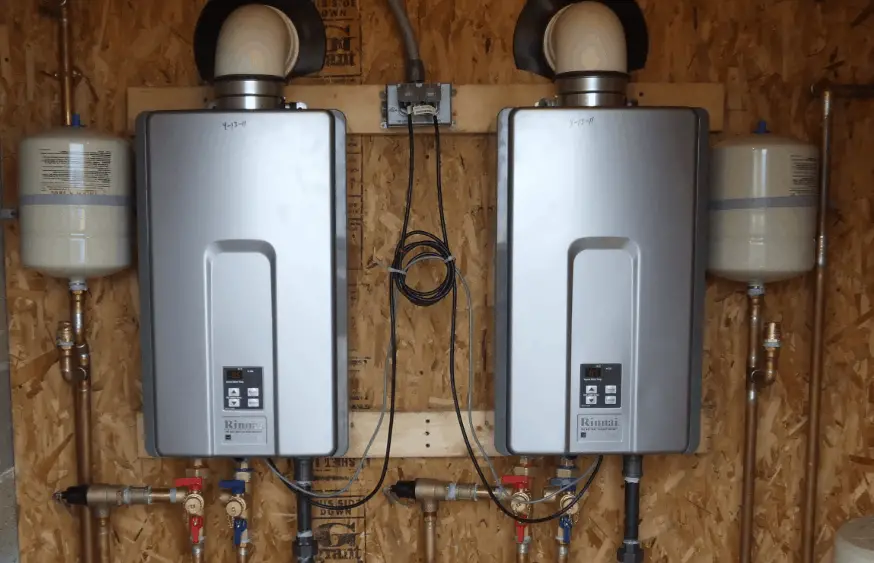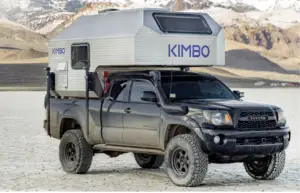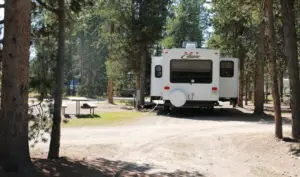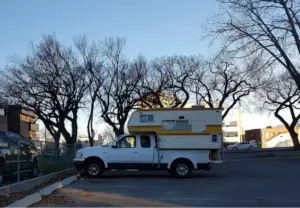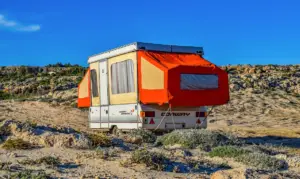RV water heater is most needed when the temperature is going down fast. A RVer knows the importance of heated water most only when he finds the water is coming out of faucet but it isn’t heated. Or when the heater wouldn’t start at all.
A quality water heater no matter from which company also needs regular maintenance else it will stop giving heated water.Atwood and suburban are the two most popular companies that manufacture RV water heaters. No matter whether you have a class A motorhome or a travel trailer, its more likely that you will have any of these two RV water heaters installed inside.
There are 3 things that as an RV owner you should know, the troubleshooting of the water heater, periodic maintenance tips for the heater and the average life of water heater inside RV so that you can replace it on time.
In this post, lets discuss these three aspects but first the average life. On an average a water heater in RV can last around 10 years. The average life does depend on lots of factors and the maintenance that is done on it.
Some of the factors that can cause the RV water heater to fail early or start giving issues are as below.
- Storing the RV with RV water heater tank filled. This can be very bad and can result in lots of other issue including odors and bad smells.
- Not replacing the anode rod on time. This can result in the tank getting corroded.
- Unable to clean the gas pipe debris on time.
- Not cleaning and flushing the water tank periodically.
- Unable to winterize the water tank pipes properly, resulting in breaking of pipes due to expansion.
Troubleshooting the water heater
No matter how much care you take and do the maintenance, you will always find that electrical equipment do stop working. With water heaters too, it can happen and fixing them can be easy provided if it isn’t something major, in which case the heater itself need to be replaced. But, for minor issues you can always get to the root cause and fix it. Lets see different troubles that you can face with them and how you can fix them on your own.
1. Burnt Electric heating element
A common reason for failure of water heater in RV is a burnt heating element. When you turn on the heater with no water in tank the heating element will start to burn. This obviously is not an ideal situation for the heater and thus you need to be careful before starting the heater.
This generally happens with people when they are taking the RV after a gap of winter storage. As a good step during storage we all winterize the RV and all the water is taken out from tanks as well as heater tanks. Forgetting to fill the heater tank can result in this issue.
If you get to this root cause, the solution is to replace the heating element. Getting a new heating element is not a big problem as it comes at low cost. Its also easy to remove and replace, you only need basic knowledge of heater to get a new one installed.
Normally the water heaters have 2 heating elements and they operate in coordination. The heater can function with one heating element but will produce water that may not be as usual. The second upper heating element is basically to top up the heating process.
One can use a continuity test using a multi meter to see if the heating element is burnt out. They are basically the electric heating loops that start producing heat when the current flows through them. A bottom electric heating element is most responsible for heating and if the water that is coming out has drastically reduced heat then there is great chance that the bottom element is burnt out.
2. Issue with bypass valve
Another common cause of no hot water being delivered at the faucet is the bypass valve being set incorrectly or in wrong position. Many a times when we winterize the rv the valves remain set as wrong. And thus, this causes the heated water to not reach at the end faucet. If this is the cause of the issue then you can consider yourself as lucky as this only need a little effort to fix. You have to check the valve position and correct its position.
If you get a hot water at faucet but it immediately turns cold then that means the bypass valve has remained opened. As a result, the incoming cold water gets mixed with heated water resulting in cold water later on.
If you ran the water heater, and the cycle has completed but still if there is no hot water then its because of hot water valve not closed. This prevents the heated water from leaving the tank. We sure need to turn the valve during winter storage of the RV but its also important to reverse it before using the RV again after spring.
3. Clogged gas supplying tube
This again is a cause that stops the water heater in RV. A gas tube can get clogged due to dust, spider nets and other debris specially when the RV has been in storage for long time. This may not happen in all cases specially if the RV has been in use continuously.
If you have been using water heater more often then there are less chances of this. But as troubleshooting step, the gas tube need to be checked if the water heater isn’t turning on at all.
4. RV water heater making noise
A RV water heater making noise may not be very common but at times the noise can be irritating inside a RV bedroom. The noise could be like hissing sound and is normally due to sediments trapped at the bottom of the tank.
So, what does this gives an indication about? It’s obviously time to clean and wash the heater water tank. Its also bad for your body so get it cleaned periodically before it starts telling you through those hissing or knocking sounds.
5. Slow Hot water flow
This has to do with faucet rather than the water heater in itself. The faucet interior pipe may have got debris deposited on them and that’s causing the water flow to slow down. Such mineral deposits can happen due to hardness of water over a period of time.
Also keeping the heater unused for long time can result in such deposits. Such debris or deposits can be hard to remove as they will be basically calcium in nature. You need to use vinegar soak to tackle it.
Soak the faucet with vinegar that is warm, this will remove the mineral deposits and increase the flow. You can repeat this procedure periodically to keep the flow constant and high.
6. Hot water smells
Yes, the hot water can smell if the tank has been not cleaned over a very long period of time. This can also happen if the RV has been sitting in storage or garage for a number for months.
The water that remained inside the tank will obliviously go stale and after it is delivered at the faucet, it will give odor. The smell can be worse like a rotten egg and thus cleaning the tanks is necessary. The bacteria will start growing once the water stays inside for longer duration.
To tackle this, you need to clean the tank thoroughly before using it again. First, turn off the connection of the heater and get the tank emptied completely. This will flush out some of the sediments deposited inside but will not clear it completely. For that, you need to sanitize the tank with a bleach.
Make a solution using around 4-6 ounces of bleach with a 6-8 gallons of fresh water. Make sure you fill the tank with this solution and keep it for sufficient amount of time till the smell goes away.
Then flush out the water bleach solution and may be flush some fresh water again. You can repeat this procedure as needed and then start using the water heater for odor less heated water.
Maintenance of RV water heater
Maintenance in any electrical equipment play key role in how much life it will have. A water heater needs regular maintenance else it may stop working. Also the maintenance that you do will have greater effect on its average life. Lets check out some of the things you need to do as part of regular maintenance.
1. Flush ad rinse the water heater tank periodically
This one is an obvious one but a lot of people due to laziness do not execute this. A water heater tank can start accumulating sediments that can result in lot of issues and ultimately reduce the life of the water heater in RV.
As a precautionary measure, you need to flush the water heater tank periodically. Specially when the RV is not be in use, make sure the water heater tank is flushed before storing and then all the water inside should be drained out. This is an important tip for winterizing the Rv as well.
There are lots of rinsing solutions that can be used to clean and flush the tank. Get one such solution and keep the tank safe from all such issues.
2. Replacing anode rod
The water heater tank need to be protected against corrosion and rusting. Some of the tanks are lined with glass and they may not need protection against corrosion. For normal tanks, anode rod is used to protect against corrosion.
The anode rod basically sacrifices itself just like in your normal home heater to make sure the tank isn’t corroding. Since most tanks are steel type the chances of corrosion are high and thus you need an active anode rod to keep it safe so that your tanks gets protected.
An anode rod may last longer than a year or even more. But, most RVers make sure that the rod is replaced in a year or so. It may not be a hard and fast rule to replace it, but its critical that you check it periodically (once a year or when you will be taking the RV out after a storage).
3. Water heater pipe lines winterizing
The water heater pipes are thin and need to be winterized else they may break due to very cold conditions. For this, after the heater tank has been drained, the pipe lines can be filled with antifreeze, that can protect it from freezing. A bypass valve could be found that keeps the antifreeze out of tank.
The tanks does not need the antifreeze since they are large enough to contract and expand. This is not the case with pipe but and hence people use antifreeze for protection. It totally depends on how the conditions are and depending on that you can make use of antifreeze or any other normal winterizing method.
Point of the matter here is to protect the water heater pipelines from freezing by using winterizing methods. If you end up putting antifreeze inside the water heater tank, then make sure you clean it up completely before next use.
4. Visually inspect the Heater
There are two most common RV water heater companies “Atwood” and suburban. No matter which water heater is present in you RV, make sure you periodically inspect the water heater for any irregularities or issue.
Such visual inspection is necessary to keep any unwanted things from happening. Especially when you are going to keep the RV in storage or when you get the RV out of storage for first time, make sure you check the heater visually before putting it to use.
5. Cleaning burner tube
The gas burner tube as its name suggest supplies the gas to the heater and it should e cleaned periodically. Keeping it clean will avoid any issues related to gas supply. You can make use of any spray or compressed air to keep it free from dirt and dust debris.

